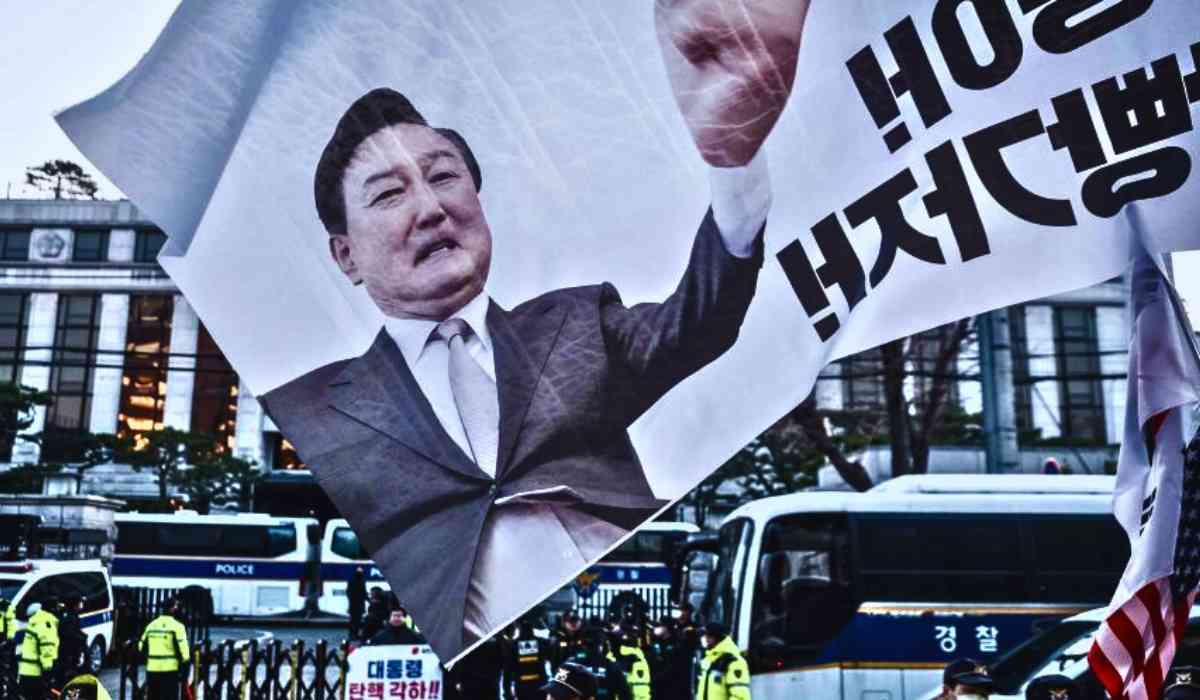On April 4, 2025, South Korea's Constitutional Court made a historic decision by upholding the impeachment of President Yoon Suk Yeol. This ruling, which was unanimous among the court's eight justices, effectively removed President Yoon from office. The decision comes after a tumultuous period in South Korean politics, sparked by Yoon's brief but controversial declaration of martial law in December 2023.

Background: The Martial Law Controversy
President Yoon Suk Yeol's decision to impose martial law on December 3, 2023, was met with immediate backlash. The move was seen as an attempt to bypass legislative gridlock and assert control over the National Assembly, which was dominated by the opposition. The declaration included provisions for media censorship and restrictions on political activities, prompting widespread protests and criticism. The opposition-controlled parliament quickly voted to annul the order, and Yoon rescinded it just six hours later.
However, the damage had already been done. The National Assembly impeached Yoon on December 14, 2023, suspending his powers and sending the case to the Constitutional Court for review. This marked a significant escalation in the political crisis, with both supporters and opponents of Yoon taking to the streets.
The Court's Decision
The Constitutional Court's ruling was clear and decisive. The justices found that Yoon's actions violated the constitution by obstructing the National Assembly's authority and deploying military and police forces to prevent lawmakers from performing their duties. The court emphasized that Yoon's claims of a national crisis, including unproven allegations of electoral fraud, did not justify the imposition of martial law.
This decision highlights the importance of checks and balances in a democratic system. By upholding the impeachment, the court reinforced the principle that no branch of government should overstep its constitutional powers. The ruling also underscores the need for political leaders to respect the rule of law and democratic processes, even in times of political tension.
🚨🇰🇷 BREAKING: SOUTH KOREA OUSTS YOON—STREETS ERUPT IN CELEBRATION
The Constitutional Court officially kicked President Yoon Suk Yeol out of office, and his critics are throwing a party.
Anti-Yoon demonstrators flooded the streets, dancing and cheering his impeachment being… https://t.co/F82z3X6qU0 pic.twitter.com/NZBsJZpsGJ— Mario Nawfal (@MarioNawfal) April 4, 2025
Implications for South Korea
The removal of President Yoon has significant implications for South Korea's political landscape. The country must now hold a new presidential election within 60 days, which will determine the direction of the nation's governance. This period will be crucial, as it will test the resilience of South Korea's democratic institutions and the ability of its political parties to navigate complex challenges.
The ongoing political upheaval has also distracted South Korea from addressing other pressing issues, such as high tariffs imposed by former U.S. President Donald Trump and increasing military collaboration between North Korea and Russia. These external pressures underscore the need for stability and effective governance in South Korea.
Global Perspective
South Korea is a key player in regional and global affairs, known for its vibrant democracy and economic prowess. The current political crisis has drawn international attention, with many watching how the situation unfolds. The use of martial law by a democratically elected leader raises questions about the limits of executive power and the role of the judiciary in protecting democratic norms.

Future Directions
As South Korea moves forward, it will be essential to address the underlying issues that led to this crisis. This includes fostering greater political dialogue and cooperation between different factions, as well as ensuring that the rule of law is respected by all branches of government.
The People Power Party, which supported Yoon, has accepted the court's verdict, emphasizing the importance of respecting the rule of law and democracy. This stance is crucial in maintaining social stability and preventing further polarization.

Conclusion
The impeachment of President Yoon Suk Yeol marks a significant moment in South Korea's political history. It demonstrates the strength of the country's constitutional framework and the judiciary's role in upholding democratic principles. As South Korea prepares for a new presidential election, it will be important for all stakeholders to work towards healing political divisions and ensuring that the country emerges stronger and more united from this challenging period.
In the end, the decision by the Constitutional Court serves as a reminder of the importance of accountability and the rule of law in democratic governance. It highlights that even the highest officeholders are not above the law and must respect the constitutional boundaries that define their authority. This principle is essential not just for South Korea but for democracies around the world.
With inputs from agencies
Image Source: Multiple agencies
© Copyright 2025. All Rights Reserved Powered by Vygr Media.

























